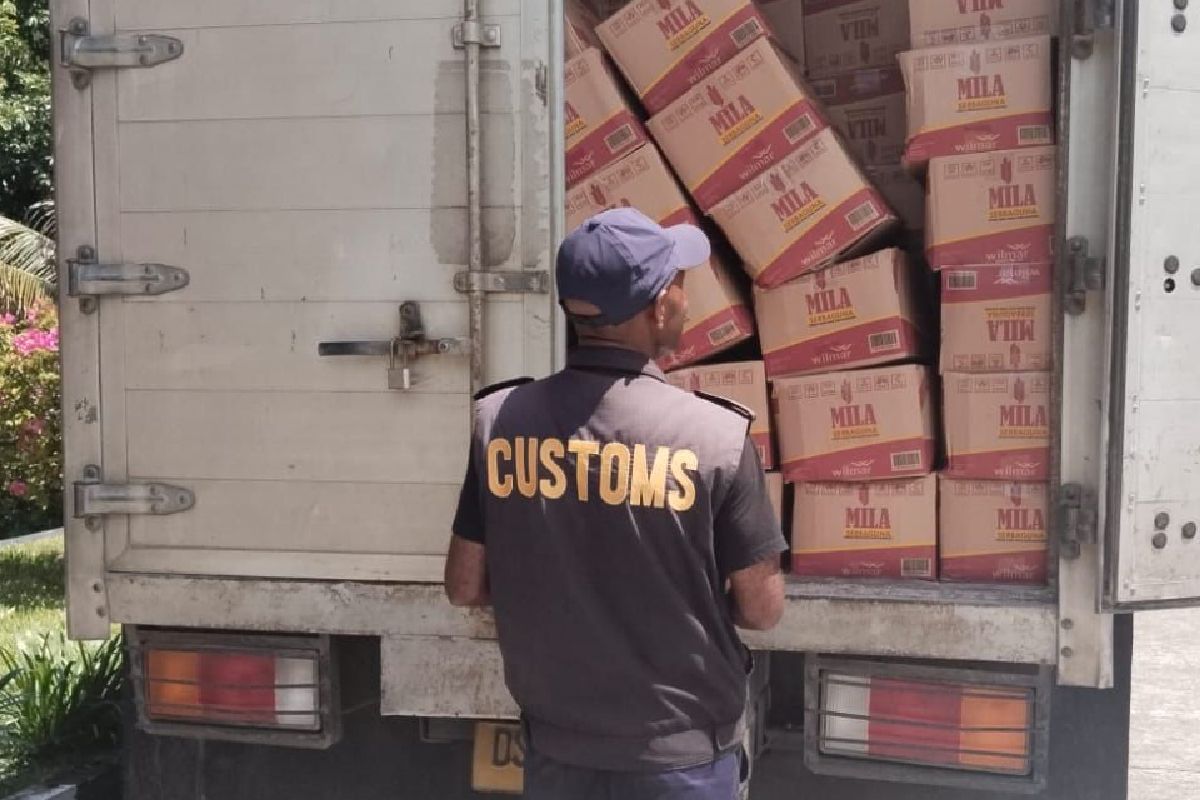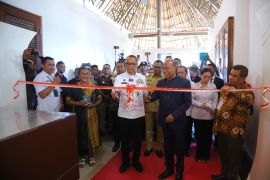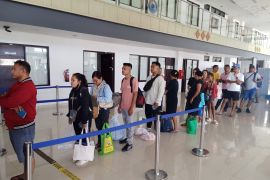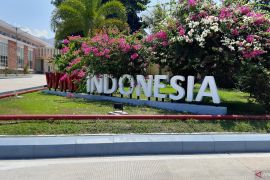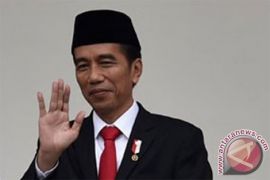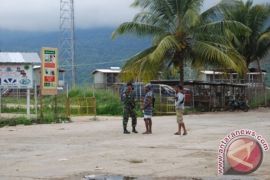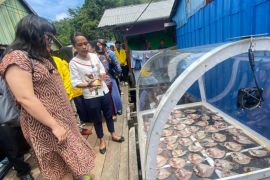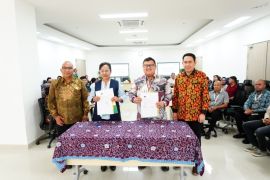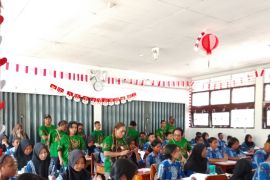Beyond being a border gate, the PLBN plays a pivotal role in facilitating the inbound and outbound flow of logistics, preventing the entry and spread of diseases, and supporting export and import activities through customs services.
The Skouw PLBN has emerged as a highly valuable and instrumental gate for Indonesia’s goods to Papua New Guinea (PNG) and other countries in the South Pacific region.
Recognizing this potential, local business actors, especially those operating in Jayapura City, have been making the most of the cross-border post to supply Papua New Guineans with the varied commodities they need.
With the establishment of the Skouw PLBN, Indonesian exporters can transport their goods overland to PNG via Papua’s Jayapura and Vanimo City across the border, making export processes more economical.
As the capital of the West Sepik Province of PNG, Vanimo is accessible by land from Jayapura through Wutung, a PNG village that directly borders Indonesia’s Skouw region.
George Waromi, an Indonesian businessman from Papua, confirmed the perks offered by the PLBN Skouw. He stated that the border post has opened significant export opportunities for him and fellow Papuan entrepreneurs.
The businessman has been partnering with PNG and Chinese business actors, currently working on several projects in the neighboring country.
Waromi remarked that the firm he leads frequently exports a range of construction materials, equipment, and tools to PNG, including pebbles, sand, asphalt, tools for fixing heavy equipment, and workers’ uniforms.
Moreover, customs officers at the PLBN Skouw assist business operators in starting their export journeys by guiding them through the requirements for overseas trade.
Indonesian exporters can conveniently submit the necessary documents for their goods online, significantly reducing the length of inspection processes once their export consignments arrive in the PLBN.
“Businessmen, especially those native to Papua, should immediately tap into the opportunities to export to PNG, making the most of the now-simplified procedures. Most importantly, we need to meet the requirements determined by the PNG government,” Waromi stated.
Deputy Head for Foreign Affairs at the Papua Office of the Indonesian Chamber of Commerce and Industry (Kadin), Jackline Yoku, affirmed that Papuan business players can seize the opportunities to export not only to PNG but also to other Pacific nations, including the Solomon Islands.
During a trade fair in December 2024, a business actor from the Solomon Islands expressed interest in partnering with Indonesian counterparts to procure Indonesian goods.
It would be rational for Papuan business players to seize this opportunity, contributing economically to strengthening Indonesia’s presence in the Pacific.
A meeting has been scheduled for the end of February this year to bring together Papuan Indonesian, PNG, and Solomon business actors to explore export and import opportunities.
Head of the Customs Office of Jayapura, Adeltus Lolok, expressed optimism that local business players would get the most out of the “export clinic” facility his team provides for consultation on export plans.
The customs office also encouraged business actors to fully capitalize on the opportunities to export to PNG and other Pacific countries through the facilities offered by the PLBN Skouw.
So far, 10 business entities have been actively exporting goods to PNG, with more business actors expected to follow in their footsteps this year, considering the available facilities and opportunities.
In 2024, the total value of Indonesian exports to PNG through the Skouw PLBN reached Rp50.45 billion (over US$3 million), predominantly household goods.
Those keen on joining the export ring must first register with the Customs-Excise Information System and Automation (CEISA) managed by the Customs and Excise Directorate General of Indonesia’s Ministry of Finance.
CEISA consolidates various services of the Directorate General, including administrative and oversight, facilitating individuals and companies in sending their goods abroad.
Once registered, exporters will be guided to obtain necessary permits online.
Jayapura customs officers are ready to guide exporters through the necessary processes and provide reliable information on customs and excises.
Typically, Indonesian businessmen send most of their exported goods to a “neutral zone” located near the Skouw PLBN. Thereafter, designated vehicles from PNG pick up and transport the export consignments to the importers.
For construction materials like sand and pebbles, the deliveries are often made via boats from a port in Jayapura.
In summary, it is safe to say that the Skouw PLBN in Jayapura has indeed emerged as a border gate that contributes to the growth of economic activities, improvements in logistics efficiency, and the enhancement of the economic ties fostered by Indonesia and PNG.
Related news: Indonesia supplies electricity to meet needs in PNG border: Jokowi
Related news: Official points to post-pandemic boost in economy in RI-PNG border
Translator: Evarukdijati, Tegar Nurfitra
Editor: Azis Kurmala
Copyright © ANTARA 2025
